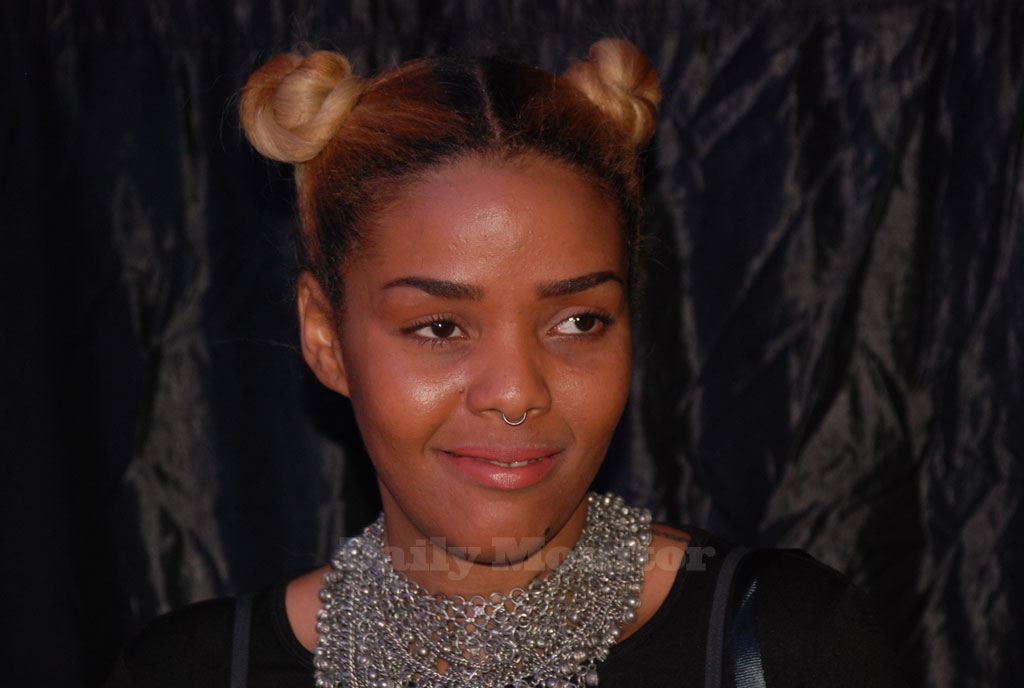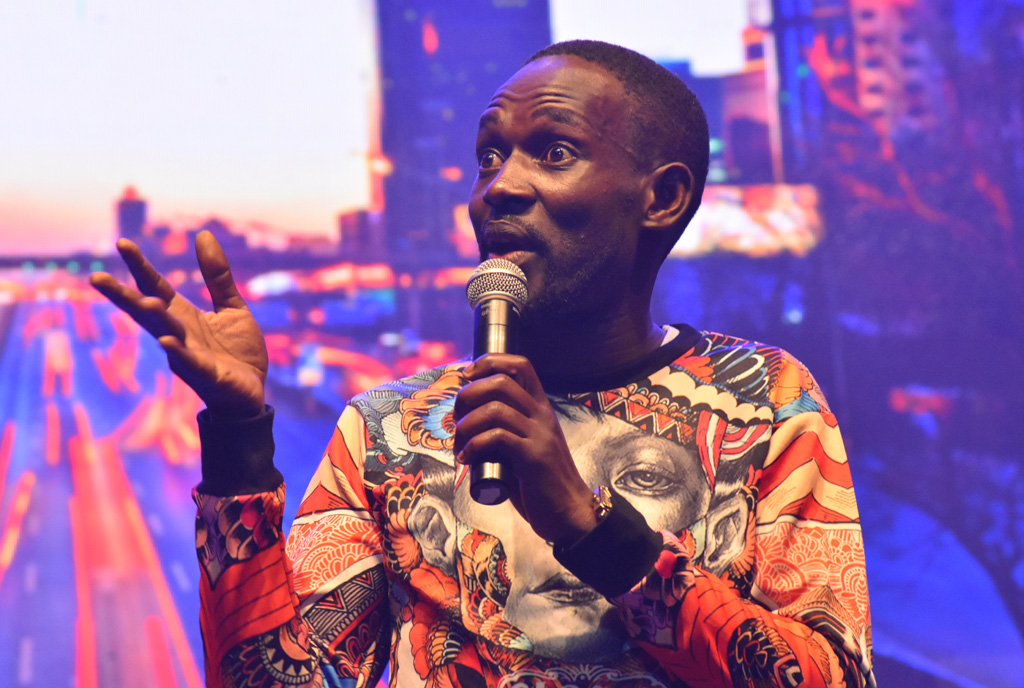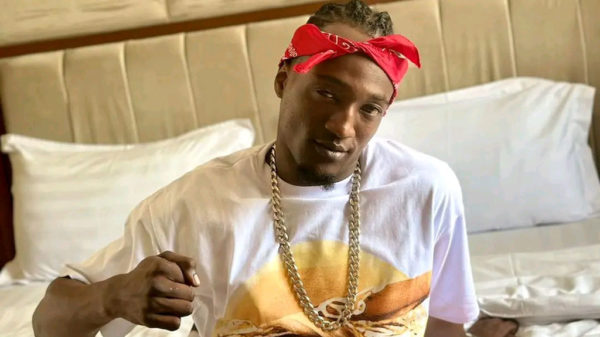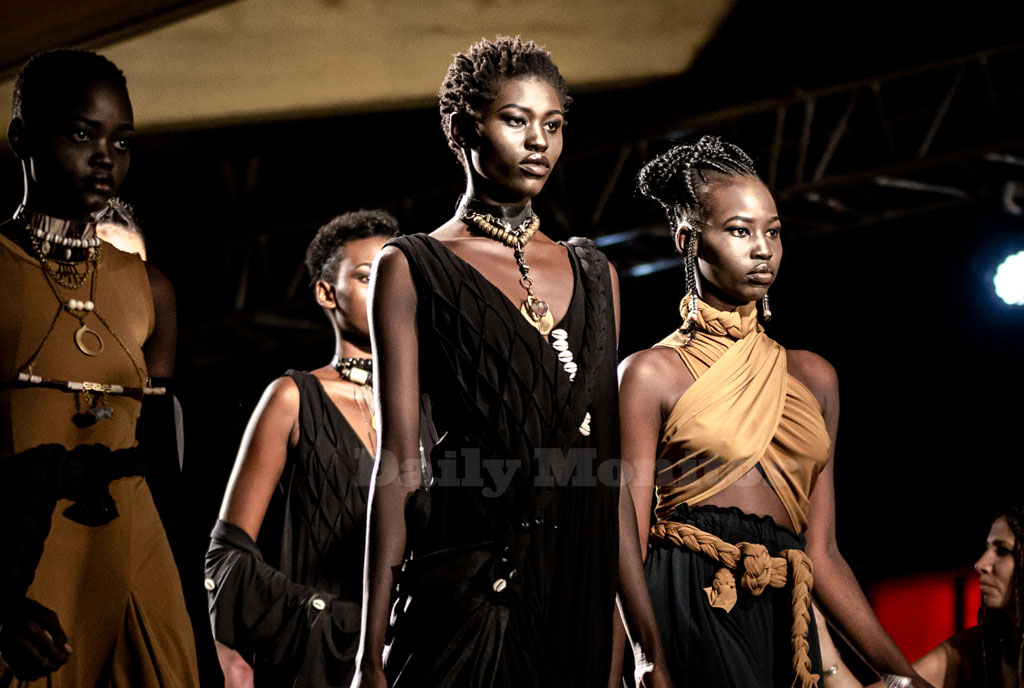By Musinguzi Bamuturaki
One of the leading Ugandan fashion designers Gloria Wavamunno has called on her colleagues to tailor their businesses along the local market demands to beat the effects of Covid-19 on the industry.
Wavamunno, who is the CEO and founder of Kampala Fashion Week (KFW), also suggested recycling secondhand clothes and collaboration.
“It is time for designers to think locally. Our creative industry is a very contact space; you have to see the clients because we are still more into tailoring than just in mass producing for shops,” the 35-year-old said.
“I know people look at second-hand clothes negatively but they can’t just be competition. But second-hand clothes are materials if you look at it in a different way. It can be where you find your zips, buttons or re-purpose clothing and fabrics.”
According to Wavamunno, “When everything opens up, the reality is that people are going to double charge because they want to make their money back. So, we are also going to have to handle that problematic part of the sector until when things change or go back to normal. I mean they have already changed, so I don’t know if normal will ever be normal.”
She also calls for unity among the fashion designers: “I happen to be in a pitching community and a founding Board Member of the Fashion Council Uganda and we are trying to collect designers together. Through KFW I have been able to reach out to very many designers.”
Drawing inspiration
Wavamunno, who launched her ready-to-wear brand ‘GloRia WavaMunno.’ in 2009, draws inspiration from her Ugandan culture and heritage, experiences and environment. The brand has showcased during fashion weeks in New York, Johannesburg, Paris and Kampala, among others.
“Each country has such a different structure, audience and energy. So, they were all amazing experiences because they inspired me to find my voice and direction to know what I bring into this world with my clothing,” Wavamunno says.
“And it’s not just clothing. I think if you care about every detail on the garment from scratch to finish, you have this intention that is conscious about why you have created this thing. You leave a little beautiful point for the people,” she adds.
Wavamunno says her Ugandan and African clientele has grown, and her garments are stocked in stores in America, Kenya and Uganda.
“In the beginning of my career it was definitely more of the global audience that was purchasing my pieces. And now I have more African clients, from not just for ready-to-wear but the tailoring. I am based in the Designing African Collective retail store, and the Ichyulu online store both in Kenya; The Narativ in New York, United States of America; and Bold in Africa in Uganda. I also have my own showroom in Kampala.”
“So, it’s like a balance and its growing. But I think I have a niche clientele who definitely understand and collect my pieces like art pieces. So, I have turned full circle with how I am creating my pieces. I am trying to create art pieces that mean something and have sentimental depth narratives that are long lasting, reusable, versatile, changeable and bold,” she adds.
Wavamunno says she was influenced into art by her mother, aunties and art teacher. “My character when I was younger was more introverted, a bit of a loner. I was intrigued or drawn to art during the course of growing up and through artistic expression whether dance, painting, singing or things instrumental like playing piano. These are things that caught my attention.”
“And I think as I grew older I met mentors and particularly my art teacher in boarding school who saw me sketching. My form of sketching was still life. I liked portraits, body forms and which evolved into outfits on those body forms. Mr Smalley, my teacher, noticed that I liked sketching a lot of clothes. And art to me was expression of how you dressed. So, being a shy individual and not so much out there I guess I found my expression through how I dressed.”
“My mother was into tailoring with her sisters, which they still are and more into design. I was fortunate enough to have a mom and aunties that were into it as a business but then it is still a form of art,” she adds.
“It was after my teacher pushing me that my eyes were opened to the world of fashion. In Uganda, the tailoring industry existed in the past and not really the fashion industry in a global setting but today we have very many fashion designers..”

Gloria Wavamunno: The fashion designer says it is time that local designers find ways to be more creative and collaborate locally. PHOTO/EDDIE CHICCO
She has designed for Nokia Face of Africa and her works have been collected by museums in America and Europe.
“I did a barkcloth jacket years ago for a museum in Texas (USA) because I am interested in the importance of barkcloth and how we can use it in clothing and other things here in Uganda. I also have pieces in museums in Switzerland and Germany,” Wavamunno says.
“Museums let you express to a Western audience that is sometimes very naive or ignorant about African culture. They only have their own version that they receive and display..”
When asked what inspires her fashion designs, Wavamunno, said: “I am not really into the one-off pieces that you can wear multiple times. I like things that you can live in, and while you are living in it, you wear it in very many different ways because that is cost-efficient just because of the fact that we have to spend money on very many things for our daily lives.”
“I also got deeper into understanding my heritage, ancestors and background. I wanted to incorporate my culture as an African, as a Ugandan, and as a multi-tribal individual. My dad is a product of two tribes and my mom is of mixed-race heritage. So, coming from so many different spaces and how that can translate into clothing to tell its own story but also giving the wearer their own identity and to turn my pieces into their own story. It does not have to be my story but what I took away from my own story was the pride, comfort and individualism, and incorporating that into clothing.”
Wavamunno acknowledges the creativity and resilience of Ugandan designers amid the challenges that are hindering the growth of their trade: “Besides the hindrances there is such resilience in the designers that have been forging their way through the challenges that we face from material stocking like threads, fabrics and finishings. Simple things like getting a button hole or a button pressing machine. There are very few people who have such machines here. Now it is even harder in the pandemic,” she says.
Wavamunno believes that the Western form of capitalist competition mindset is not going to work well for Uganda, saying: “I have worked in the international fashion industry and it was very ruthless, a bit extreme, and sometimes very dark in how they were handling things from manufacturing all the way to sales and marketing. Even having that experience when I came back home I did not want that translated because I was affected and traumatised by some of the things I was put through. A heartless attitude to something that was just generating a lot of money so that an individual did not matter.”
After growing a desire for a Ugandan-based platform that could translate fashion into business, Wavamunno launched KFW in 2014, to reach a global audience and promote homegrown labels. She also founded the Fashion Council Uganda. Through her different ventures she continues to educate and influence quality of production in Uganda, to support others in creating sustainable fashion businesses in Uganda.
Talking KFW success
When asked what impact KFW has had on the local industry, Wavamunno, said: “It is not like other fashion weeks where there is the sale hype kind of vibe. I think it has been very humble in the sense that it really works from the core up and out. Our team is made up of artists and that was so important to me. There are designers people did not know in as much as they were working in design. Everybody is always giving feedback, networking and support. And everyone understands where all this is coming from.”
She notes that there was always this respect attitude which was so important because I felt that is what I wanted people to take out of KFW. Respect your supplier, respect yourself, respect your models, and respect your tailors and seamstresses. Have conversations and connect with each other. I feel that has always been the energy of KFW. It was about uniting, educating and inspiring a community,” she adds.
Wavamunno says due to the prevailing restrictions related to the Covid-19 pandemic, KFW was not held last year. “We postponed it. But we are also about evolution. I mean if people have followed us they know that KFW is at a new location, with a new theme and energy. Because every year it sends a message highlighting what is going on in the world, re-educating the designers and creating relationships within and out of KFW.”
Asked what he would have been if she was not a fashion designer, Wavamunno said: “I am a teacher, an educator and herbalist. I am about healing, I guess in all forms, as the first form of me trying to give that healing element to people. When you wear my pieces and you feel comfortable, it is a form of healing to feel comfortable and confident in yourself.”
“Teaching is such a healing thing because when people feel like somebody pays attention and wants to give them knowledge, wants to educate them, wants them to find and be the best versions of themselves that is another form. We come from a very rich country with so much fruits and nature, and it would be silly not to be aware that medicines are made from plants that are available in Uganda,” she added.






























































